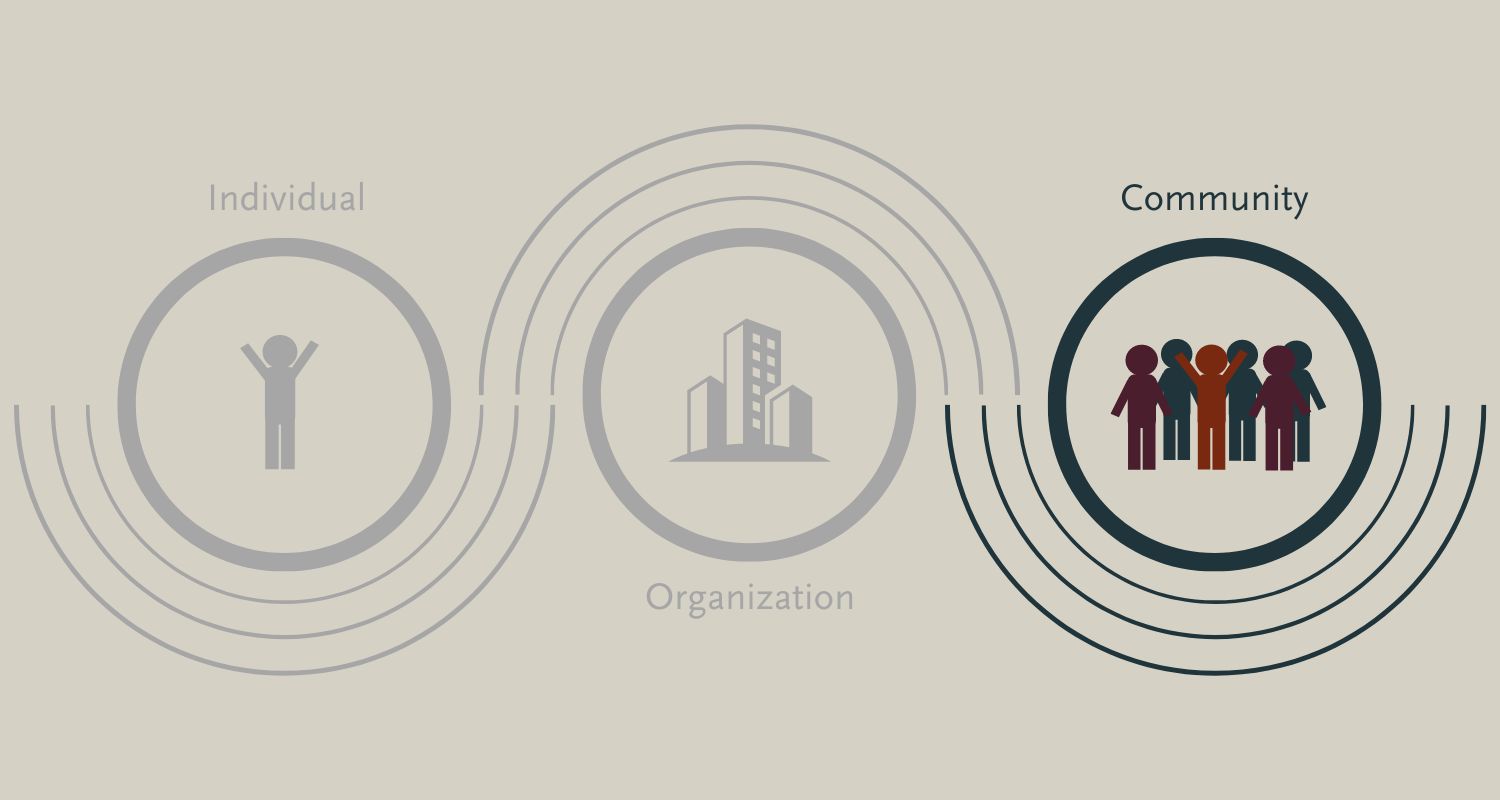Community Development
Setting the Stage for a More Flourishing Society
Markers of Flourishing Communities
Leaders face reality.
They look at the presence of complex problems, working with the anxiety and fear of the situation, and staying in curious conversation to share and listen across different viewpoints about how best to solve the problem.
People aren’t frightened.
Dignity and respect are primary.
The Importance of Place
We live, work, and serve within a context – in a specific time, place, and culture. To be most effective as a changemaker, we must become a student of our place; our person, organization and community.
Building a flourishing society feels aspirational, but as we each focus right where we are, our thousands of small movements build towards a collective impact.
“Ours is not the task of fixing the entire world all at once, but of stretching out to mend the part of the world that is within our reach. Any small, calm thing that one soul can do to help another soul, to assist some portion of this poor suffering world, will help immensely.” – Clarissa Pinkola Estes
Offerings to Impact Your Community
CTE programs provide leaders with a replicable process to understand identity, belonging, and mission in their context.
Thriving Communities Workshops
A variety of workshops that guide you through the process of learning to listen well, analyze, and implement more effective ways of being and servicing in your context.
Christ & Cascadia
This online publication highlights expressions of Christian faith communities in the Cascadia bioregion.
Christ & Cascadia Annual Gathering
Every spring we hold an event that gathers people from all over the greater Cascadia region to focus on questions and issues specific to our place and time. This event is designed to facilitate the exchange of ideas among Christ followers to explore, imagine, and create the future of Christianity in Cascadia.
Compelling Preaching Annual Gathering
This event will offer preaching inspiration, tools, and practices. Guest lecturers will speak on an aspect of preaching, innovative faith communities and how it intersections of text, soul, and culture

